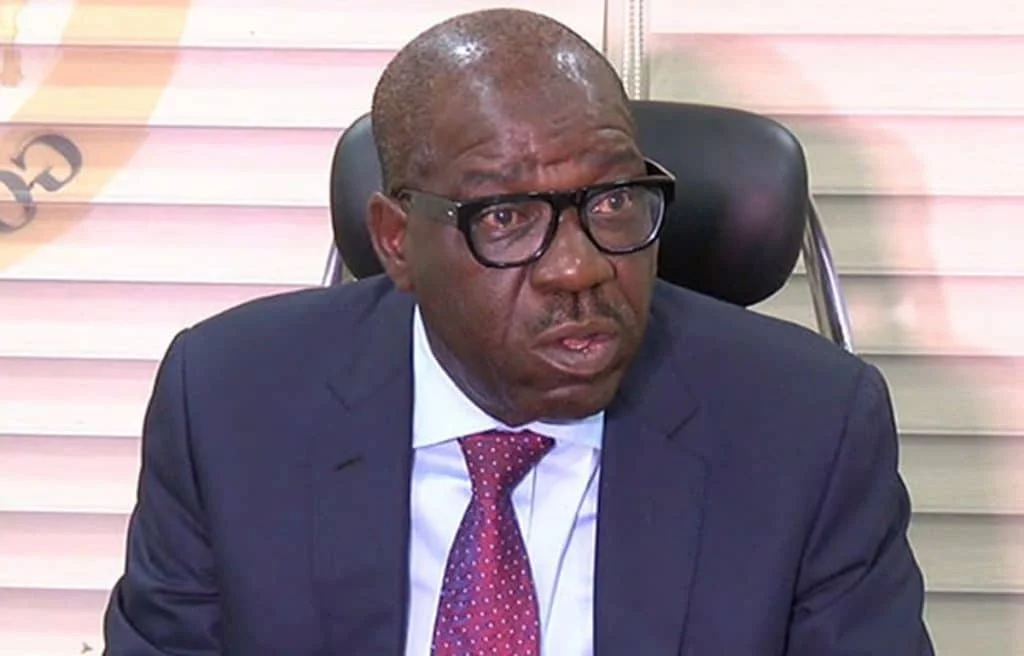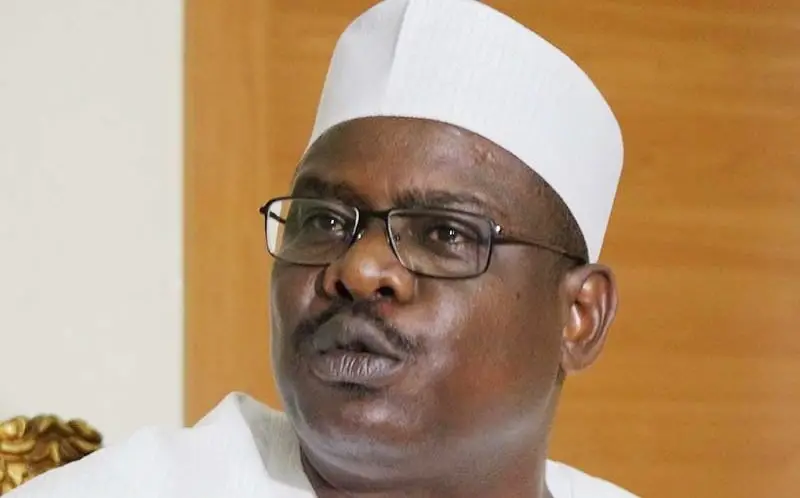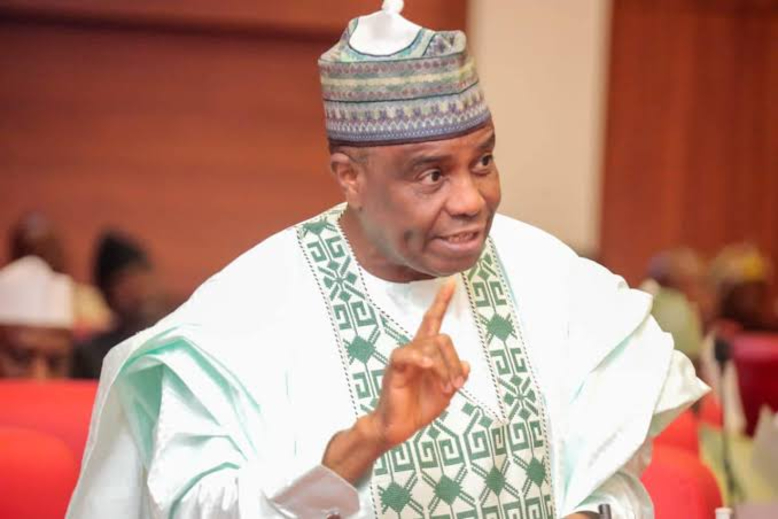News
N8,000 Palliative: FG Robbing Poor To Pay The Rich – NLC

The Nigeria Labour Congress (NLC) has faulted President Bola Tinubu’s administration over the proposed N8,000 monthly cash palliative of N8,000 for 12 million Nigerian families in the space of six months, saying it was a ploy in robbing the poor to pay the rich.
Recall that Tinubu, last week, wrote a letter to the National Assembly seeking approval of an $800 million loan to be disbursed to 12 million households in the portion of N8,000 each, designed to cushion the effect of removal of fuel subsidy.
Reacting to this palliative, NLC President, Comrade Joe Ajaero, in a press release, on Tuesday, said the Federal Government is already using dictatorship style to impoverish Nigerians.
Ajaero further said the FG did not consider the plight of the Nigerian workers before making the decision on the palliative, as it said, “We have restrained ourselves from making further comments publicly on the vexatious issues around the recent but unfortunate unilateral hike in the price of Premium Motor Spirit (PMS) in the guise of the so-called subsidy withdrawal which has unleashed predictably as we had earlier warned unimaginable and unprecedented hardship, sorrow, anguish and suffering upon Nigerian workers and masses.
“Our resolve is anchored on our strong and abiding faith in the outcomes of the processes of social dialogue and its mechanisms, especially within a democratic setting which fortunately all the major stakeholders in the nation’s socioeconomic framework pleads to at this particular point in time though some have demonstrably shown that it does not go deeper than the rhetoric.
“However, the government of Nigeria seems to have been misled into believing that resorting to impunity and imperiousness in governance in a democracy is a beneficial option as it pursues its stated and unstated objectives.
“It is this belief that we are sure has continued shaping the actions of this government since its inauguration on the 29th day of May, 2023 to continue inflicting mindless and heartless pains on the populace one after the other without the decency of embracing the tenets of democracy which requires wide and deep stakeholder consultation on weighty matters of state.
READ ALSO: Tinubu Seeks Reps Approval Of N500bn For Subsidy Palliatives
“Nigerians would remember that the federal government had called for dialogue in the aftermath of its disastrous forlorn trajectory in the astronomical increase in Petroleum product price and our subsequent call for a nation-wide industrial action.
“We were also witnesses to the actions of the federal government in procuring an unholy injunction from the Courts which were served us in Gestapo style by trucks laden with fully armed soldiers and Policemen.
“In all of these provocations, we remained committed to the principles of the Rule of Law, good conscience and democracy so that we can continue to be the moral compass for leaders in the public space. This explained our decision to suspend action on the proposed strike.”
Ajaero said, “As it stands, rather than reciprocate the goodwill of Nigerian workers, the federal government has insisted on threading the path of dictatorship and seeking to impoverish the people further by taking steps that can only be described as robbing the people of Nigeria to pay and feed the Rich.
“It is on this basis that the NLC strongly condemns the decision of the Tinubu-led administration to seek the approval of the National Assembly to obtain another tranche of external loans worth N500b from the World Bank for the purposes of carrying out a phantom palliative measure to cushion the effect of its poorly thought-out hike in the prices of Premium Motor Spirit.
“Remember that the $ 800 million which was already proposed before the devaluation of the Naira by this government was worth about N400 billion then but is now worth about N650 billion after devaluation. It is from this, it proposes to bring out N500 billion for distribution.
“The proposal to pay N8,000 to each of the so-called 12 million poorest Nigerian households for a period of six months insults our collective intelligence and makes a mockery of our patience and abiding faith in social dialogue which the government may have alluded to albeit pretentiously.
“The further proposal to pay National Assembly members the sum of N70 billion and the Judiciary N36b is the most insensitive, reckless and brazen diversion of our collective patrimony into the pockets of public officers whose sworn responsibility it is to protect our nation’s treasury.
READ ALSO: FG Gets $800m World Bank Grant For Subsidy Palliatives
“We believe that this may amount to hush money and outright bribery of the other arms of government to acquiesce the aberration.
“It is unconscionable that a government that has foisted so much hardship on the people within nearly two months of coming into office will make a proposal that clearly rewards the rich in public office to the detriment of the poor. What this means all this while is that the government is seeking ways of robbing the very poor Nigerians so that the rich can become richer.
“There is no other way to explain the proposal to pay a misery sum of N8,000 Naira to each of the mysterious poorest 12 million Households for six months which amounts to N48,000 and pay just 469 National Legislators N70b or about N149m each while the Judiciary that has about 72 Appeal Court Judges, 33 National Industrial Court Judges, 75 Federal High Court Judges and 21 Supreme Court Judges and a total of about 201 Judges receives a total of N35b or N174m each.
“If these other two arms are projected to receive this, what members of the Executive Council will receive is better left to the imagination of Nigerians perhaps, the balance of N150b will go to them.
“These proposals are not just unacceptable to Nigerian workers but are also dictatorial and thus undemocratic.
“It is not a product of social dialogue which would have produced collectively negotiated outcomes by critical national stakeholders.
“We had thought that this government given the circumstances of its emergence ought to have been a stickler to all the preachments of the fine tenets of democracy which would have shored up its image and begun to build legitimacy for itself unfortunately, it seems to be in a hurry to abandon the remaining pretensions to democracy that the previous administration left behind.
“Furthermore, the actions of the federal government show that it does not have trust and confidence in the very Presidential Committee that it set up to take a comprehensive look at the consequences of the Petroleum Product price hike and make recommendations on the way forward to ameliorate its negative impacts upon the citizenry.
“What this means is that the government may actually not be interested in the work of the Committee and may have used it as a window to pretend to Nigerians that it is taking steps towards dealing with the consequences of its policies.
“We do not understand why the federal government would seek to undermine itself as its action suggests. Why not wait for the Committee to sit and come up with the needed recommendations which would then guide the government’s fiscal and monetary policies? Seeking to borrow and going to the NASS for an approval means that it has already taken decisions on what it wants to do and has a budget thus is in need to borrow to fund these activities. Like they will tell you; it is a fait accompli.
READ ALSO: Senate Grills Minister Over N32.4bn COVID-19 Palliative Fund
“We reiterate that we do not have confidence in how the data for the never changing 12m poorest households was generated neither do we have confidence in the mechanisms being pursued for the distribution of the cash transfers.
“The history of such transfers especially the school feeding programmes even while the children were at home due to the Covid-19 pandemic and the Trader Moni saga fills Nigerians with trepidation reminding us of the continued heist of our collective resources by those in Public office.
“We have continually demanded that this register be made public but, it seems to have become an instrument of the occult shrouded in mystery and wielded by the grandmasters whenever opportunities like this present themselves.
“It is important to inform Nigerians that despite having shown our readiness to commence work in the Committees, the federal government which convenes the meetings is yet to inaugurate the National Steering Committee thus stalling the Work of the Proposed Committees.
“If the government had wanted an expedited action which Nigerians want more, the best approach would have been to quickly inaugurate the Committees and allow them do their work but as we write, nothing has been done except the continuation of the borrowing spree and subsequent allocation to themselves.
“NLC would not want to continue to be part of the usual charade of Committees with outcomes that are never implemented. We would not want to waste the time of Nigerians especially workers on Committees that have already been programmed to fail and thus ignored.
“We do not want to provide a cover for the government to get away with the hardship it has imposed on the people. We do not want to legitimize impunity.
“As a result, if the government does not want to stop these fortuitous actions that it is pursuing in the name of palliatives, we will be forced to constructively review our engagement with the government on this vexatious issue and take matters into our own hands.”
VANGUARD
News
Ex-Edo Gov Obaseki Reacts As His Cousin Is Beaten, Stripped

The immediate past governor of Edo State, Godwin Obaseki, has reacted to the attack on Don Pedro Obaseki, the Chief Executive Officer of Osamudia Farms.
Don Pedro Obaseki, a cousin to the immediate past governor was attacked at Uwa Primary School where he went to play football.
In a viral video, Pedro Obaseki is seen kneeling at the Oba of Benin Palace gate, before he was dragged into the palace where he was asked to crawl before some chief walked up to the scene and rescued him.
Reacting, the ex-Edo governor described the act as a “grave violation of fundamental human rights and a reckless disregard for the rule of law.”
READ ALSO: Obaseki Beaten, Stripped In Edo
Obaseki, said: “I call on security agencies to immediately investigate this matter thoroughly and transparently, identify those responsible for this barbaric act and ensure they are held accountable in accordance with the law.
“A situation where thugs and non-state actors appear to freely take the law into their own hands on behalf of high-profile individuals and those in positions of authority can only result in one outcome, a degeneration into a state of anarchy, which will do no one no good.”
He further charged, “I urge human rights organizations, civil society groups, and all well-meaning Nigerians to lend their voices and speak out firmly against this injustice and gross violation of human rights.”
News
New Tax Laws: Suspend January 2026 Implementation — Senator Ndume Tells Tinubu

Former Senate Leader, Ali Ndume has appealed to President Bola Ahmed Tinubu to suspend the January 1, 2026, implementation of the country’s new tax laws amid growing controversy.
The federal lawmaker made the appeal in a statement he issued on Wednesday in Abuja.
This comes as the Nigerian Bar Association demanded the suspension of the implementation.
Recall that a member of the House of Representatives, Abdussamad Dasuki, had last week called the Parliament’s attention to alleged alteration to the tax laws.
READ ALSO:FIRS Confirms NIN As Tax ID
Chairman of the Presidential Fiscal Policy and Tax Reforms Committee, Taiwo Oyedele, in an interview on Arise Television on Wednesday, called for calm over claims of alterations in tax laws and urged Nigerians to allow lawmakers to complete their investigation before drawing conclusions.
Speaking on the ongoing controversy about the tax laws, Ndume noted that proceeding with the implementation without getting to the root of the alleged forgery will create a legitimacy challenge for the tax laws.
His statement read, “With the controversy surrounding it, the President should constitute a team to verify the veracity of the claim and act accordingly.
“As the responsive leader that he has always been, he should look at it to find out if the copy that was signed and the claim of alterations are genuine so that he will do the needful to bring the controversy to rest.
READ ALSO:US Threatens To Sanction Countries That Vote For Shipping Carbon Tax
“If not, the controversy will continue.” That is to say, the tax law will not be implemented, because you can’t build on nothing.
“So, Mr. President should suspend the implementation until the issues are resolved because so many civil society organizations, the Arewa Community, and the Nigerian Bar Association are saying that he should withdraw the tax law and investigate the allegation of forgery.”
“Therefore, Mr President should get to the root of the allegation of forgery. The small committee that will be set up should look into it while the House of Representatives does its own.”
News
Tambuwal Engages Security Agencies As US Airstrikes Hit Own LG In Sokoto

Senator Aminu Waziri Tambuwal, representing Sokoto South, has called on residents of Sokoto State to remain calm following reports of United States airstrikes targeting ISIS-linked terrorists on Christmas Day.
In a statement posted on his personal X account, the former Sokoto State governor said he was aware of reports concerning the airstrikes, which marked a direct US military action in Nigeria based on intelligence about ISWAP threats, and urged citizens to remain law-abiding while authorities clarify the situation.
“I have noted the reports concerning an airstrike carried out as part of ongoing counterterrorism efforts through cooperation between the federal government of Nigeria and the United States,” Tambuwal said. “I urge our communities to remain calm and law abiding as relevant authorities clarify the circumstances surrounding the operation.”
READ ALSO:US Dept Of War Shares Video Of Air Strikes In Nigeria
Tambuwal assured constituents that he was engaging with relevant security agencies to obtain full details of the operation and to ensure that necessary things were in place to protect civilians.
“I wish to assure the people of Sokoto South that I am in active talks with relevant security authorities to obtain full details and ensure that all necessary safeguards are upheld,” he added.
The senator emphasised that counterterrorism operations were aimed strictly at criminal and terrorist elements threatening public safety, not innocent civilians who are often victims of insecurity. He stressed that the protection of civilian lives must remain central to all legitimate security actions.
He further called on community leaders, traditional institutions and residents to work closely with security agencies by sharing credible intelligence and resisting misinformation capable of causing fear or heightening tension.

 News4 days ago
News4 days agoJUST IN: Kano Lawmaker, Sarki Aliyu Daneji, Dies Hours After Colleague’s Passing

 News4 days ago
News4 days agoFULL LIST: Churches That Don’t Celebrate Christmas

 Headline3 days ago
Headline3 days agoJUST IN: US Forces Bomb Terrorists Camps In Nigeria

 News3 days ago
News3 days agoOkpebholo Slams ₦25bn Libel Suit On Edo PDP Chairman

 Headline3 days ago
Headline3 days agoUS Dept Of War Shares Video Of Air Strikes In Nigeria

 Entertainment4 days ago
Entertainment4 days agoAFCON 2025: Davido Wins $96,000 After Super Eagles Beat Tanzania

 News5 days ago
News5 days agoOPINION: The Day Friendship Died

 News4 days ago
News4 days agoSheikh Gummi Sues Two Over Alleged False Facebook Publication

 News4 days ago
News4 days ago7 Health Risks Of Owning A Cat

 Headline4 days ago
Headline4 days agoCoup: Guinea-Bissau Junta Releases Six Held Opposition Politicians
































